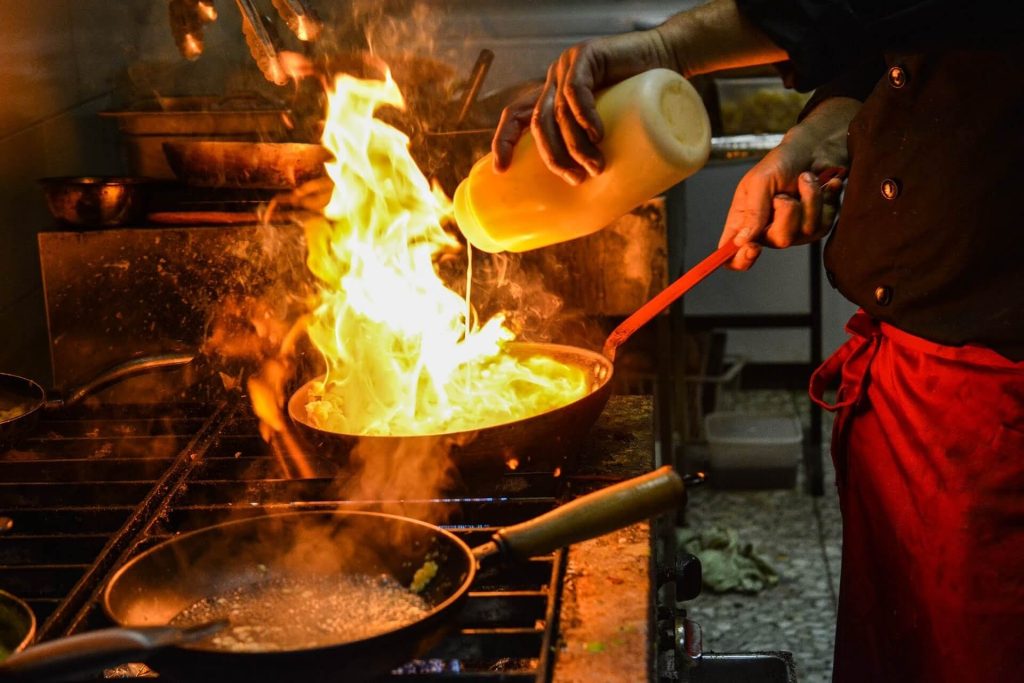Practical Guides on Starting a Restaurant Business

A restaurant business involves running an establishment where people can go to eat and drink. This typically involves preparing and serving food and drinks, as well as managing the business operations such as purchasing ingredients, hiring staff, and marketing the restaurant to potential customers. The increase of dining out culture in Nepal is making this industry attractive. However, the ease to start and low capital requirements are increasing the competition. Running a restaurant can be challenging, but it can also be a rewarding and profitable business venture for those who are passionate about the food and hospitality industry and differentiate the restaurant from the competition.
Starting a Restaurant Business
Starting a restaurant business can be a rewarding and challenging endeavour. There are several important steps to take before opening a restaurant, including:
- Develop a business plan: A business plan is a detailed roadmap that outlines the goals and objectives of your restaurant, as well as the strategies and actions you will take to achieve them. It should include an overview of the market, your target customers, and your unique selling proposition.
- Choose a location: The location of your restaurant is critical to its success. Consider factors such as the size of the space, the surrounding area, and the availability of parking and public transportation.
- Obtain licenses and permits: You will need to obtain various licenses and permits to operate a restaurant, including a food service license, a liquor license (if you plan to serve alcohol), and a business permit. Check with your local government to learn about the specific requirements in your area.
- Develop a menu and find suppliers: Create a unique and appealing menu that caters to your target customers. Research and choose suppliers who can provide high-quality ingredients at a competitive price.
- Hire and train staff: Assemble a team of dedicated and talented employees, and provide them with the training and support they need to succeed.
- Promote your restaurant: Develop a marketing plan to promote your restaurant and attract customers. This could include advertising, social media marketing, and public relations efforts.
Starting a restaurant requires careful planning, dedication, and hard work, but with the right approach, it can be a successful and rewarding venture.

Some Restaurant Business Ideas
Here are a few potential ideas for a restaurant that could help it stand out from the competition:
- Farm-to-table: Focus on using locally sourced, fresh ingredients in your dishes, and highlight the farmers and suppliers on your menu.
- Plant-based: Offer a menu that is entirely plant-based, with a variety of dishes that appeal to vegetarians, vegans, and meat-eaters alike.
- Ethnically-themed: Specialize in a particular type of cuisine, such as Italian, Mexican, or Japanese, and create a dining experience that transports customers to a different culture.
- Interactive dining: Create a dining experience that is interactive and engaging, such as a build-your-own-meal concept or a cooking class with the chef.
- Sustainable practices: Implement sustainable practices in your restaurant, such as using eco-friendly packaging, conserving water and energy, and composting food waste.
- Virtual reality: Incorporate virtual reality technology into the dining experience, allowing customers to explore different environments or virtually travel to far-off destinations.
These are just a few potential ideas, but the key is to find something unique and memorable that will set your restaurant apart from the competition.
Menu is Important
Things to consider while creating a menu for your restaurant
There are several important things to consider when creating a menu for your restaurant, including:
- Your target customers: Consider who your target customers are and what they are looking for in a dining experience. Offer dishes that cater to their tastes and preferences.
- Your unique selling proposition: What makes your restaurant unique? Focus on dishes that showcase your unique selling proposition, whether it’s locally sourced ingredients, plant-based options, or a particular type of cuisine.
- Seasonality: Use seasonal ingredients to create dishes that are fresh and flavourful. This can also help you save money on ingredients and offer customers a sense of novelty and variety.
- Pricing: Determine the price point for each dish based on the cost of ingredients, labour, and overhead. Offer a range of options at different price points to appeal to a broad range of customers.
- Presentation: The presentation of your dishes is important in creating a memorable dining experience. Consider the visual appeal of each dish, and use plateware and garnishes to enhance its presentation.
- Allergies and dietary restrictions: Be sure to include options for customers with allergies or dietary restrictions, such as gluten-free, dairy-free, and vegan options.
The key is to create a balanced and appealing menu that showcases the unique offerings of your restaurant and appeals to your target customers.
What things might fail my restaurant business?
There are many potential reasons why a restaurant business might fail. Some common reasons include:
- Lack of planning and business strategy: Successful restaurants are usually well-planned and have a clear strategy in place for how to attract and retain customers.
- Poor location: The location of a restaurant can greatly affect its success. A restaurant that is difficult to access or in an area with little foot traffic may struggle to attract customers.
- Poor quality food: The quality of the food served in a restaurant is crucial to its success. If the food is not tasty or well-prepared, customers are unlikely to return or recommend the restaurant to others.
- Poor customer service: Customer service is an important aspect of the restaurant experience. If customers do not feel welcomed or well-served, they may not return to the restaurant.
- High overhead costs: Running a restaurant can be expensive, and high overhead costs such as rent, utilities, and employee salaries can make it difficult to turn a profit.
- Competition: The restaurant industry is highly competitive, and a new restaurant may struggle to compete with established businesses in the area.
In addition to these factors, economic downturns or other unforeseen events can also impact the success of a restaurant business.
